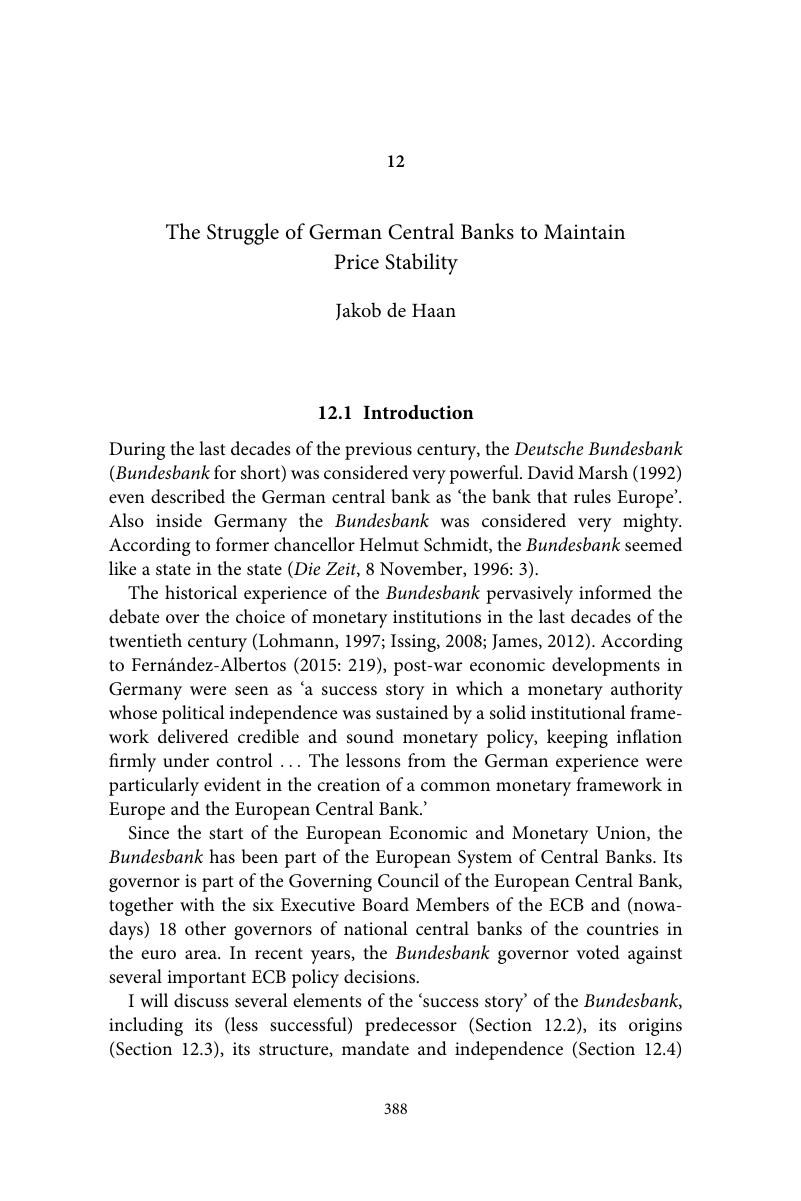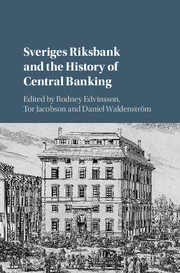Book contents
- Sveriges Riksbank and the History of Central Banking
- Studies in Macroeconomic History
- Sveriges Riksbank and the History of Central Banking
- Copyright page
- Contents
- Figures
- Tables
- Contributors
- 1 Introduction
- 2 Central Banks: Evolution and Innovation in Historical Perspective
- 3 Sveriges Riksbank: 350 Years in the Making
- 4 The Bank of England, 1694–2017
- 5 The Bank of Spain, 1782–2017: A History
- 6 The Other Way: A Narrative History of the Bank of France
- 7 Four Hundred Years of Central Banking in the Netherlands, 1609–2016
- 8 Norges Bank 1816–2016: A History of a Small Independent Central Bank
- 9 The Bank of Italy, A Short History, 1893–1998
- 10 A History of the Bank of Japan, 1882–2016
- 11 The Two Eras of Central Banking in the United States
- 12 The Struggle of German Central Banks to Maintain Price Stability
- 13 The People’s Bank of China: From 1948 to 2016
- 14 The European Central Bank
- Index
- References
12 - The Struggle of German Central Banks to Maintain Price Stability
Published online by Cambridge University Press: 10 May 2018
- Sveriges Riksbank and the History of Central Banking
- Studies in Macroeconomic History
- Sveriges Riksbank and the History of Central Banking
- Copyright page
- Contents
- Figures
- Tables
- Contributors
- 1 Introduction
- 2 Central Banks: Evolution and Innovation in Historical Perspective
- 3 Sveriges Riksbank: 350 Years in the Making
- 4 The Bank of England, 1694–2017
- 5 The Bank of Spain, 1782–2017: A History
- 6 The Other Way: A Narrative History of the Bank of France
- 7 Four Hundred Years of Central Banking in the Netherlands, 1609–2016
- 8 Norges Bank 1816–2016: A History of a Small Independent Central Bank
- 9 The Bank of Italy, A Short History, 1893–1998
- 10 A History of the Bank of Japan, 1882–2016
- 11 The Two Eras of Central Banking in the United States
- 12 The Struggle of German Central Banks to Maintain Price Stability
- 13 The People’s Bank of China: From 1948 to 2016
- 14 The European Central Bank
- Index
- References
Summary

- Type
- Chapter
- Information
- Sveriges Riksbank and the History of Central Banking , pp. 388 - 417Publisher: Cambridge University PressPrint publication year: 2018
References
- 1
- Cited by

